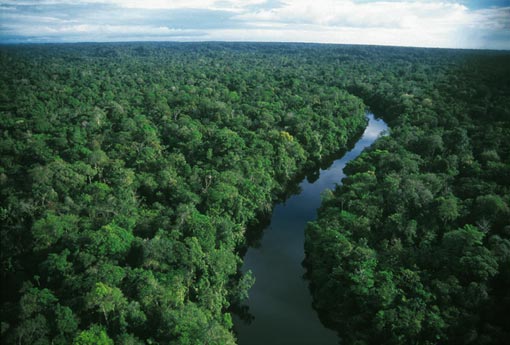
Brazil announced yesterday that it reduced tropical rainforest destruction to another record low level. The country’s National Institute for Space Research found that the loss of Amazonian forest reached a record low of 2,490 square miles (6,450 square kilometers) between August 2009 and July 2010, 67 percent lower than the average deforestation rate between 1996 and 2005.
Below is a statement by Doug Boucher, director of climate research and analysis at the Union of Concerned Scientists.
“Brazil has done more than any other country over the past five years to cut global warming emissions by dramatically reducing its deforestation. Destroying tropical forests is responsible for about 15 percent of global warming pollution, and Brazil had been the biggest source of deforestation pollution. Its reduction is a stunning turnaround.
“Let’s put this achievement in perspective. This year, Brazil has emitted about 850 million tons less global warming pollution per year than what it emitted between 1996 and 2005. That is just 15 percent less than the amount the Obama administration promised to cut between 2005 and 2020. And it is equal to the amount the European Union has pledged to cut by 2020. In other words, a developing country already has nearly achieved what the world’s wealthiest countries have only promised to do.
“Brazil had previously committed to cutting deforestation by 80 percent by 2020, and recently shortened that time frame to 2016. But by enforcing its environmental laws, protecting indigenous peoples’ land, and reforming agriculture and ranching practices, it has already made a 67 percent reduction, putting it well on the way to reaching even its accelerated goal.
“Some of the credit needs to go to Norway, which agreed to give Brazil as much as $1 billion over five years if it reduced deforestation. That funding has compensated farmers, ranchers and other Brazilians whose livelihoods depend on clearing trees. Norway’s contribution amounted to about $100 a year for each of its citizens. By contrast, the amount of aid the United States has pledged to protect tropical forests amounts to only about $1 a year for each American.
“Brazil’s accomplishment is a ray of hope in an otherwise gloomy picture due to the failure of wealthy countries to seriously address global warming. It’s past time for the rest of the world to step up and follow Brazil’s lead.”



